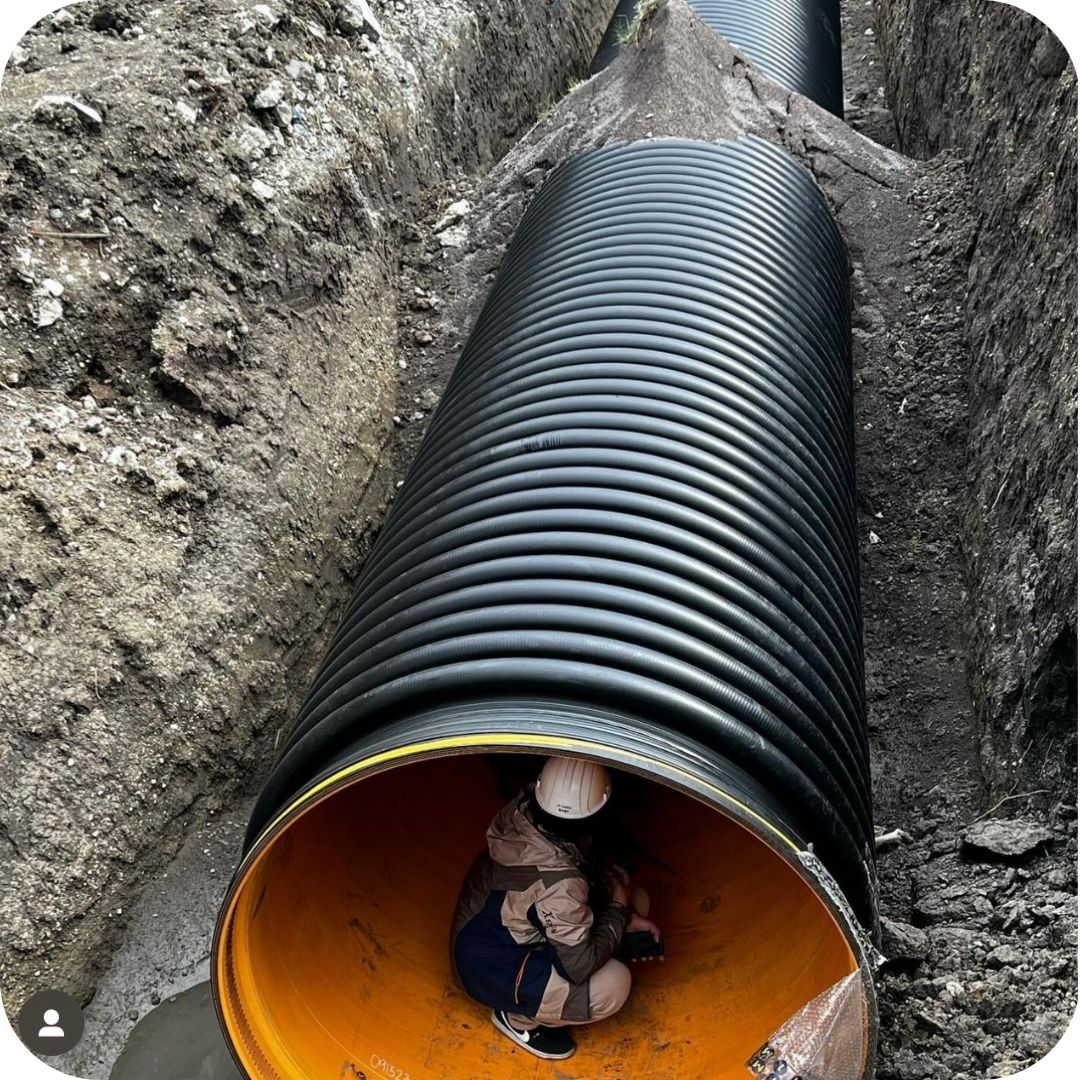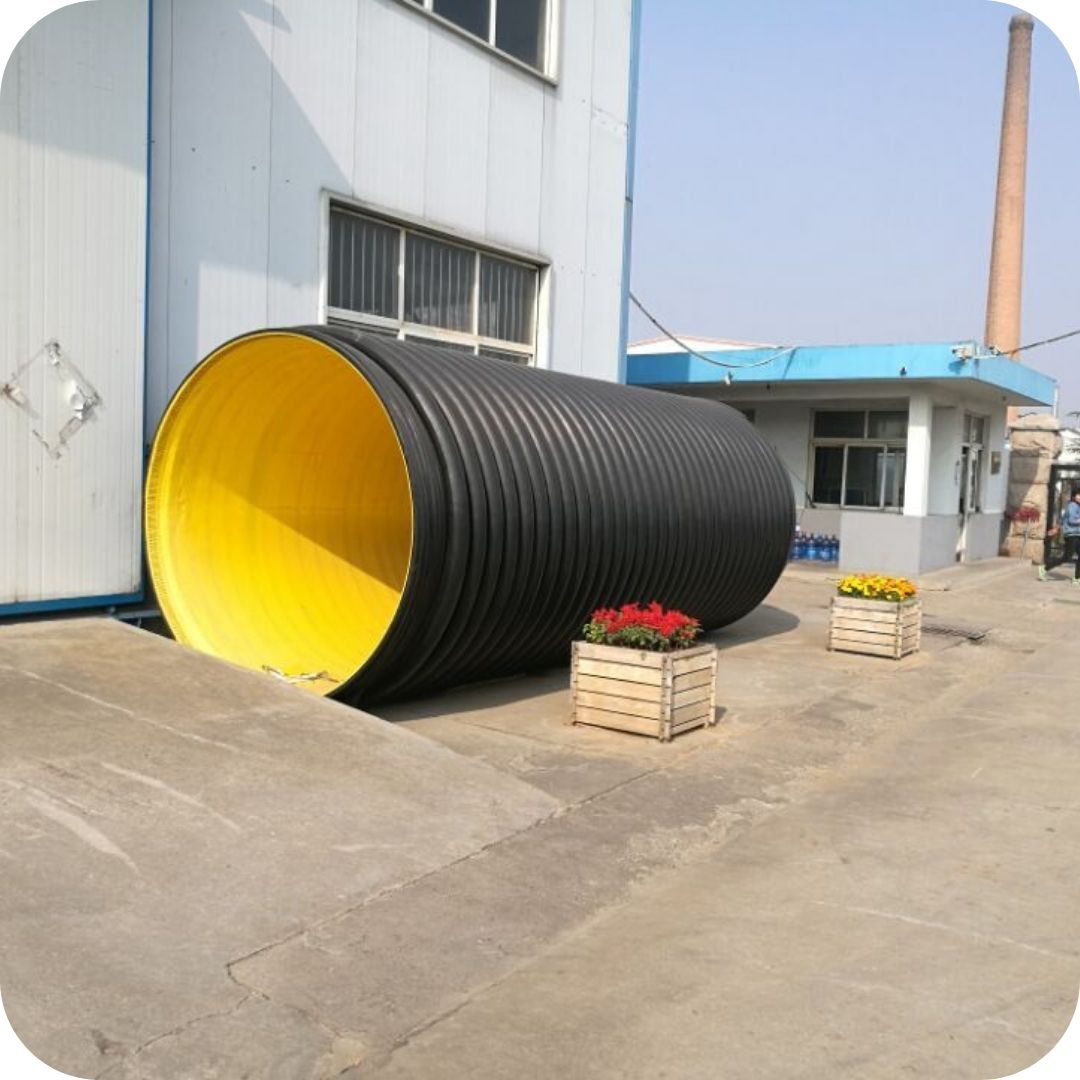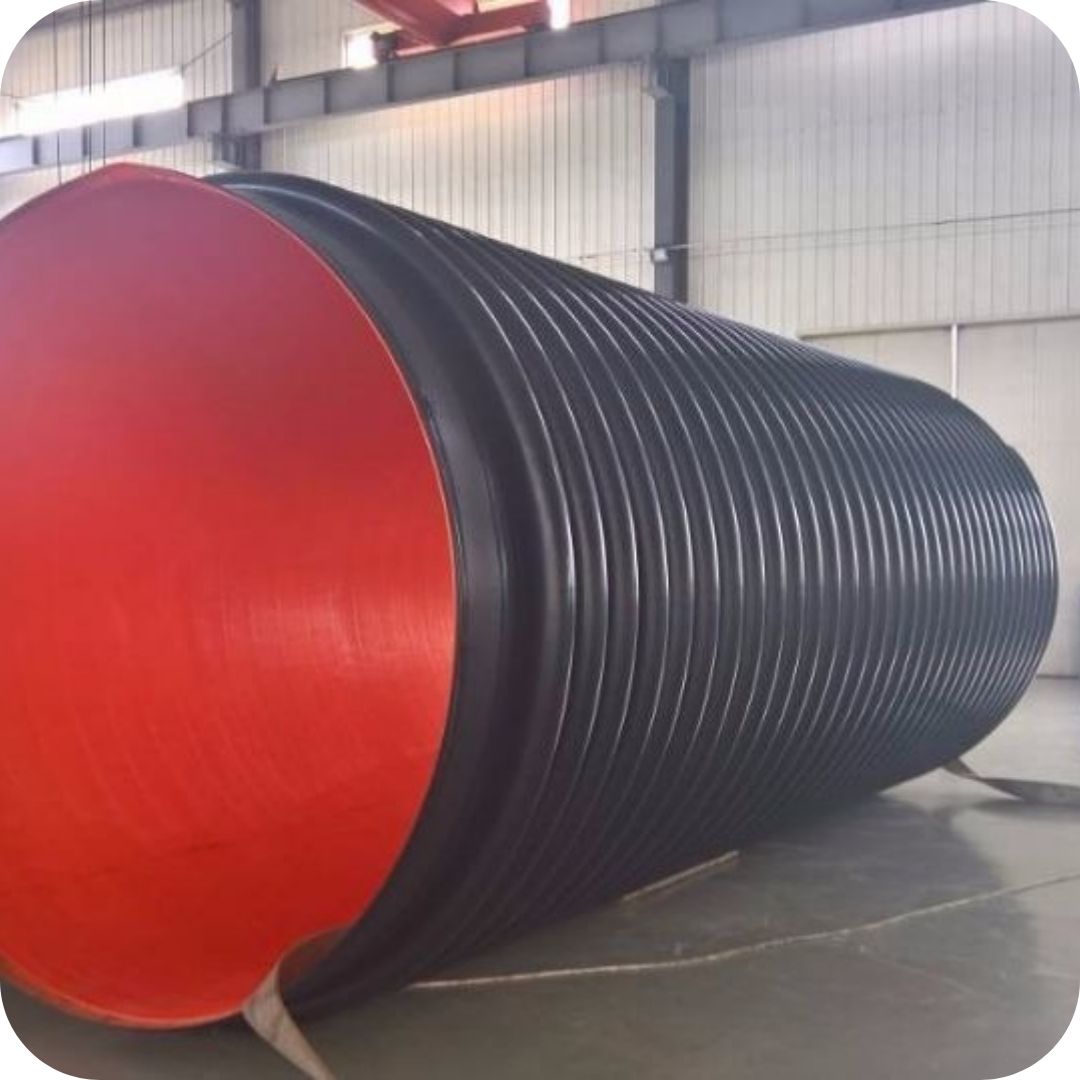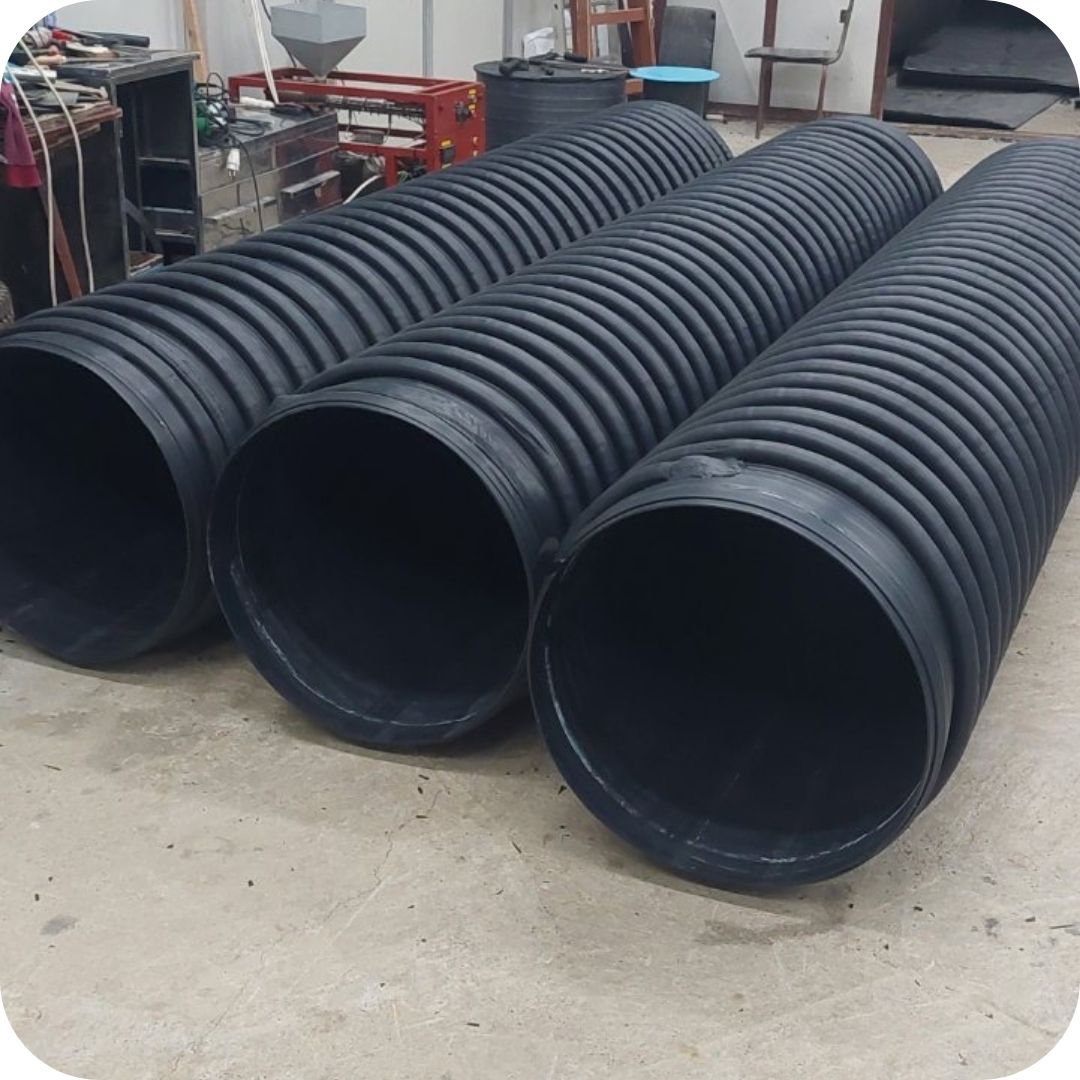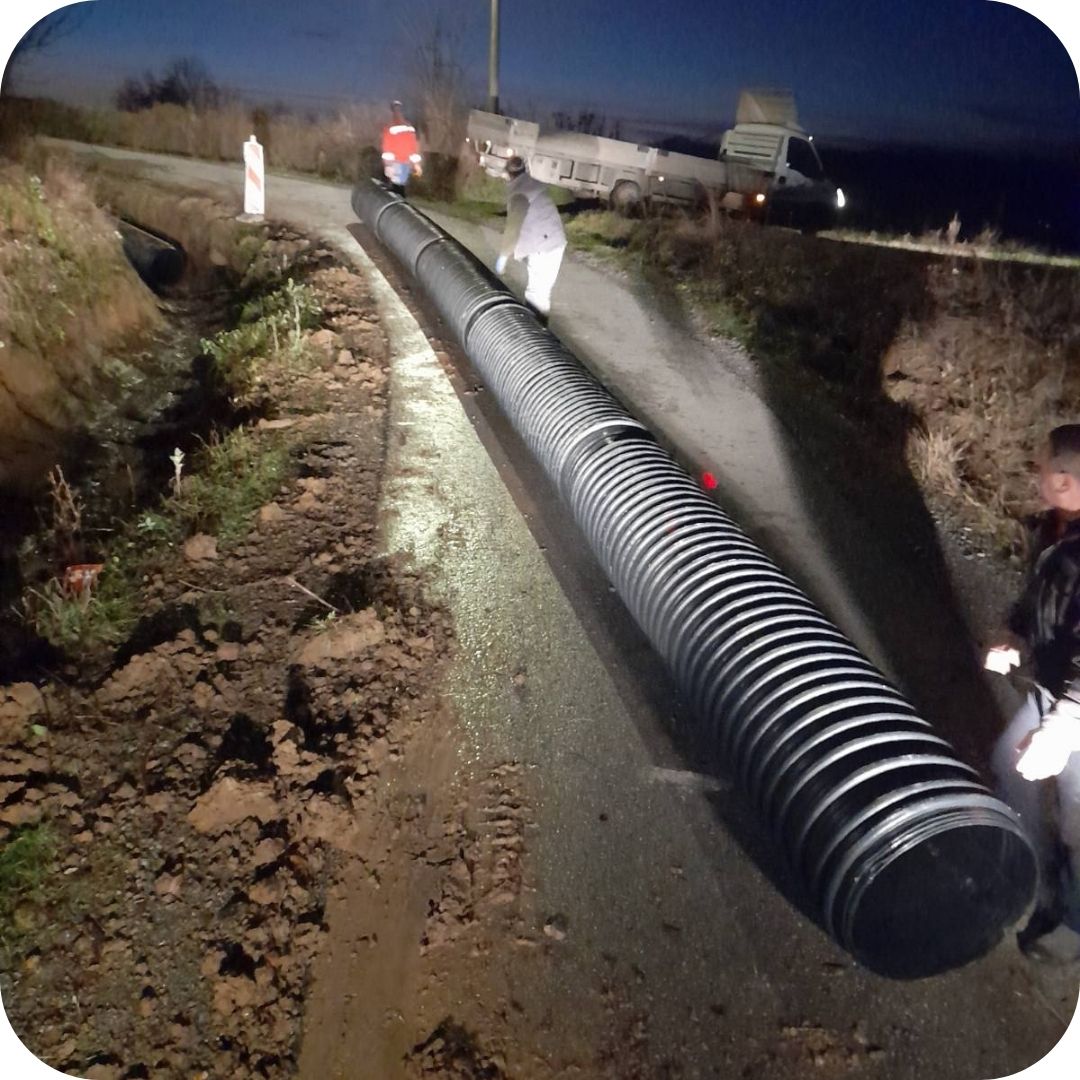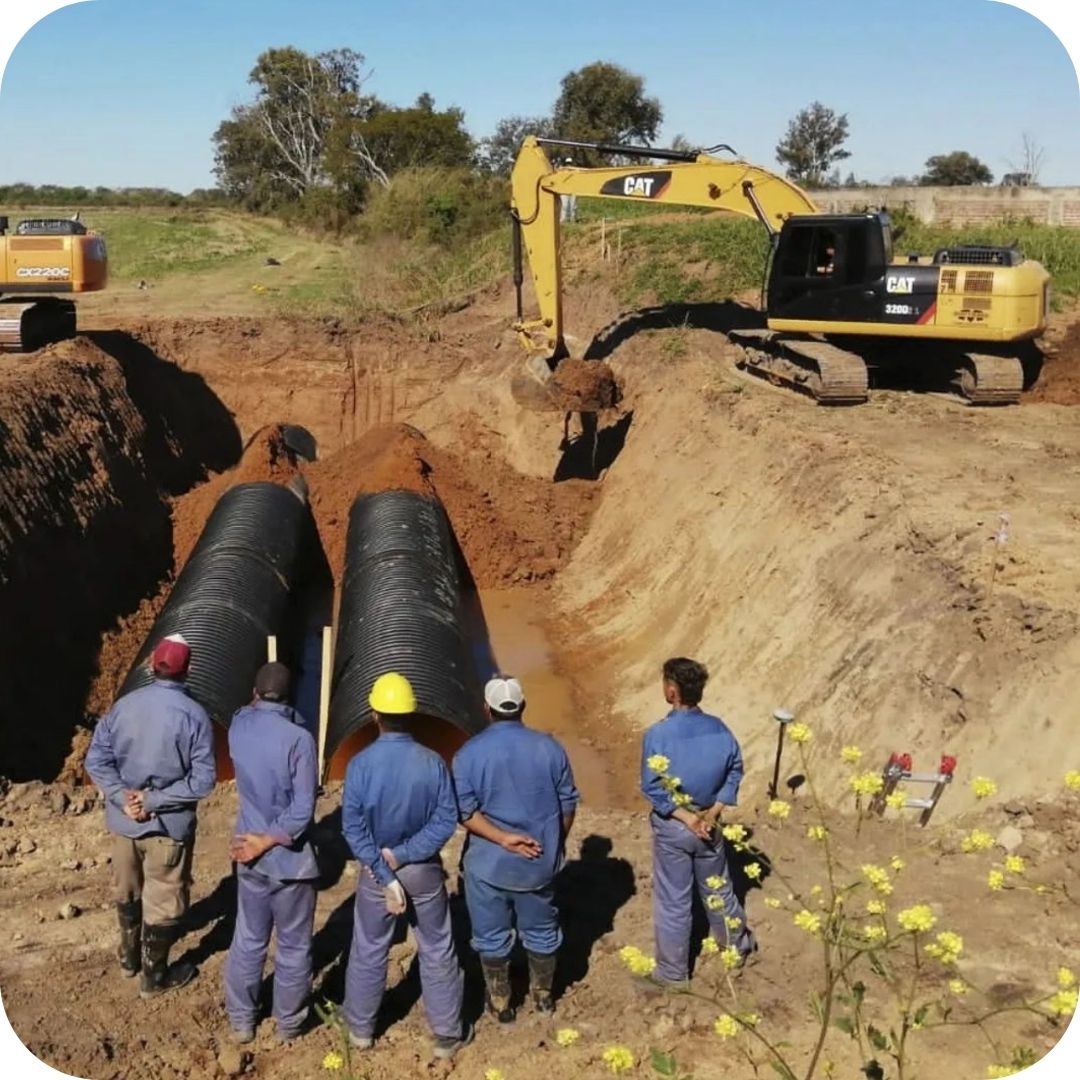Sewer pipes
Large plastic sewer pipes are designed to efficiently manage wastewater in households and industry. They are made from highly resistant materials like HDPE, making them durable, impact-resistant, wear-resistant, and corrosion-resistant
Installing these pipes involves careful planning of the layout, ground preparation, placement at the appropriate depth considering local soil conditions and load, and connecting pipes through methods such as extrusion welding. The installation process requires expertise and precision to ensure long-lasting and efficient system functionality.







